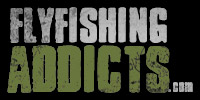Contact: Noah Greenwald, (503) 484-7495
Dr. Roland Knapp, (760) 647-0034
Lawsuit Filed to Protect Native Fish and Amphibians From Hatchery Fish Stocking by the
California Department of Fish and Game
SACRAMENTO, Calif.— The Center for Biological Diversity today filed suit against the California Department of Fish and Game over the environmental impacts of stocking millions of hatchery fish in streams and water bodies every year, particularly the harmful impacts on native trout, steelhead, salmon, amphibians, and other wildlife. In response to a previous suit brought by the Center, the Department issued an environmental impact report on January 11, 2010 that was supposed to analyze and mitigate the impacts of the hatchery fish-stocking program. Today’s suit asserts that the impact report utterly failed to analyze the full impacts of nonnative fish stocking or adopt adequate measures to reduce the program’s harm.
“The California Department of Fish and Game has utterly failed to mitigate for the devastating impacts of stocking hatchery fish on native fish and wildlife like chinook salmon, mountain yellow-legged frogs, and long-toed salamanders,” said Noah Greenwald, endangered species program director at the Center. “Fish and Game needs to redo its impact report and propose measures to reduce the destructive impacts of fish stocking.”
Rather than consider the cumulative impacts of a century of introducing nonnative fish, the report sets the baseline for analysis as the current fish-stocking program, dodging the obvious need to assess declines in native species caused by previous stocking practices. The report also defines the purpose of the stocking program as the maintenance of existing, flawed stocking policies, when the purpose of the program should be providing quality opportunities for recreational fishing and protecting native species. Fish and Game’s limited consideration of alternatives focused on creating fisheries by intensive stocking, rather than simply maintaining wild fisheries in suitable waters. Yet a number of studies suggest that wild fisheries can provide better fishing opportunities than artificially stocked waters.
“Fish and Game has missed the mark with this review and failed to consider alternatives that better meet its mission of providing fishing opportunities and conserving native wildlife,” said Greenwald. “It’s questionable whether the current fish-stocking program effectively provides fish for recreation or commercial purposes.”
Stocking of non native trout has contributed to declines of many native species, particularly amphibians such as the mountain yellow-legged frog, Cascades frog, and long-toed salamander, which need fishless, high mountain lakes for survival. Rather than adopting a policy of ceasing stocking in waters where such sensitive aquatic species occur, Fish and Game has stated that it will “consider” not stocking if it believes stocking will have a significant impact.
“The Department of Fish and Game had a unique opportunity with this environmental analysis to develop fish-stocking options that could benefit both native species and anglers,” said Roland Knapp, a biologist at the University of California’s Sierra Nevada Aquatic Research Laboratory who has studied the decline of the mountain yellow-legged frog for more than a decade. “Instead, they’ve produced an impact report that will benefit neither. That is truly a lost opportunity.”
Scientists with the National Marine Fisheries Service have determined that in addition to widespread habitat degradation, hatchery stocking is an important factor in the recent collapse of salmon runs that led to a complete shutdown of commercial salmon fishing in much of California and Oregon for the past two years. One federal study concluded that the “longstanding and ongoing degradation of freshwater and estuarine habitats and the subsequent heavy reliance on hatchery production were also likely contributors to the collapse” of salmon stocks. The state’s new report does not propose any specific mitigations to address the impacts of hatchery fish on native salmon stocks.
“Because of Fish and Game’s wholesale failure to consider or mitigate the impacts of fish stocking on native species, we have no choice but to file suit to force the Department to reevaluate,” said Greenwald.














